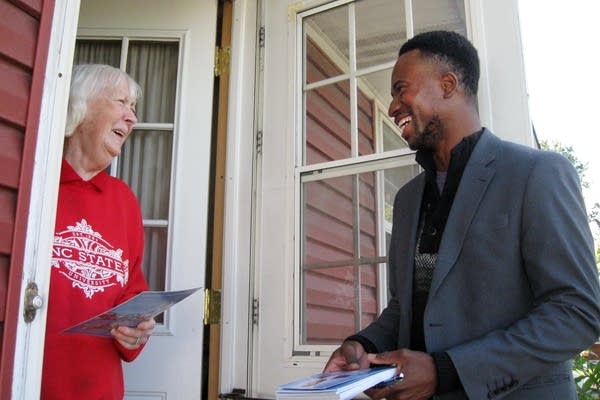Liberian roots, local politics: Mayoral hopeful tests diverse suburb

Brooklyn Center mayoral challenger Mike Elliott talks with voter Nancy Tanji, on Oct. 4, 2014. Tanji has been a resident of the city for 48 years. Elliott's family emigrated from Liberia to Brooklyn Center when he was 11.
Sasha Aslanian / MPR News
Go Deeper.
Create an account or log in to save stories.
Like this?
Thanks for liking this story! We have added it to a list of your favorite stories.


